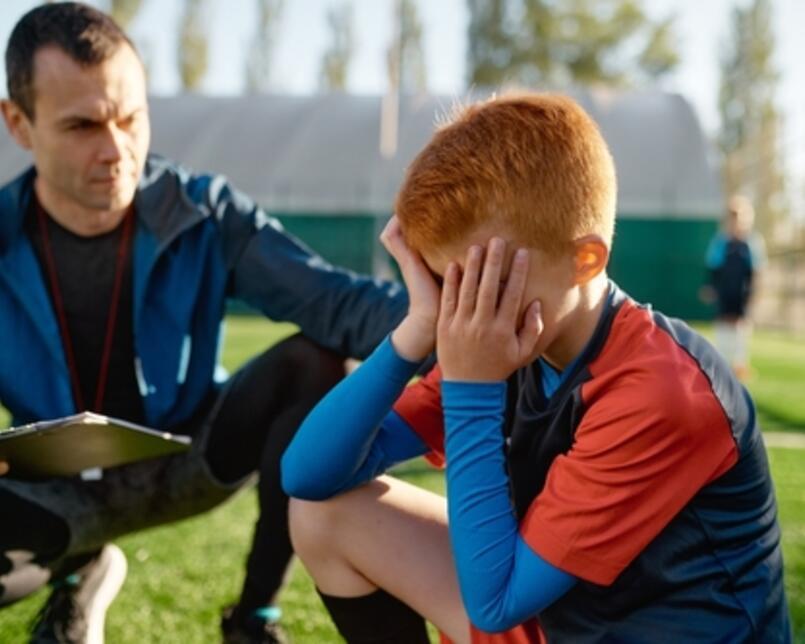This summer brings a celebration of sports, starting with Euro 2024. But recent research from across Europe suggests that sports, and football in particular, can also serve as a petri dish for antisemitism.
Dr Keith Kahn-Harris
Dr Keith Kahn-Harris
It’s that time of year again. Another summer of sport awaits, highlighted this year by the Olympics in Paris, scheduled to commence in August, where athletes from different countries will compete for personal and national glory. The curtain raiser for these summer celebrations is the 2024 UEFA European Football Championship, or Euro 2024, held in Germany and starting on June 14th. Like millions of people across the continent and beyond, British Jews will share in the excitement and expectation.
In the UK, national football is a time for fans to root specifically for their country. During Euro 2024, fans of Scotland will be hoping they progress beyond the group stage where they finished last time; fans of Wales and Northern Ireland will wish to see their national teams make it to the next tournament, as they failed to qualify for this one; and, as always, fans of England will sing ‘it’s coming home’ and expect nothing short of victory. If nothing else, it’s a chance to remind people again that David Baddiel is not just the ‘Jews Don’t Count’ guy.
Sports play an important part in Jewish life in the UK and elsewhere. The Maccabi World Union spans the globe, bringing Jews together in numerous sporting competitions. The Maccabiah Games, held in Israel every four years, draws about 10,000 Jewish athletes from all over the world. In the UK, the Maccabi Football League includes dozens of teams playing fiercely contested Sunday morning matches. In our 2024 study of Jews in the UK today, JPR researchers found that 3.9% of adult Jews living in the UK had done unpaid voluntary work for a Jewish sporting or exercise group in the year before being asked. While that’s a lot less than the 31% who had volunteered in a synagogue, it’s slightly more than the 3.7% who had volunteered with the sick or disabled.
Sadly, we can’t talk about Jews and sport, and Jews and football in particular, without mentioning antisemitism. Competition, even a healthy one, draws emotions and ‘trash-talk’, which sometimes manifests in antisemitic and racist slurs in the stands. Sometimes, far-right political organisations at football stadiums use antisemitism and other forms of racism for propaganda purposes and as a device to incite violence. Data from the JPR Research Panel suggest that 7.9% of British Jews had witnessed or heard negative statements about Jews at a sports event during the year before being asked (2022). This proportion declined slightly from 2018 when 9% of UK Jewish respondents agreed with that statement in a survey JPR conducted in twelve countries for the EU Agency for Fundamental Rights (FRA). That same survey found significant differences between EU countries in how likely Jews were to report hearing negative statements about Jews at sports events. The highest was Italy, at 28%, and the lowest was Denmark, at 4% (the UK was the third lowest).

Most antisemitic incidents in football happen during amateur sporting activities
With social research on sports, including football, now firmly established within academia, there is a small but growing literature emerging on Jews, antisemitism and football in European countries. JPR has been collating this research in our European Jewish Research Archive (EJRA), a free-to-use, comprehensive repository of social research on European Jews since 1990. While there has yet to be an extensive and comparative study of the varying levels of antisemitism found in football cultures throughout Europe, the studies we have collated on EJRA offer some intriguing insights:
As fans, JPR staff will watch Euro 2024 as avidly as everyone else. At the same time, part of our upcoming 2024 Jewish Current Affairs Survey will involve gathering vital information on antisemitism in sport, and investigating whether the October 7th attacks on Israel and the war in Gaza have affected British Jews' experiences in the sporting arena. If you are a professional or an amateur athlete, a fan of football or any other sport, or have children involved in sporting activities, we invite you to join our research panel and make your opinions count. No matter which team you support during Euro 2024, you will support the British Jewish community by joining our panel.
That’s a sure win.
Senior Research Fellow and Project Director of the European Jewish Research Archive
Senior Research Fellow and Project Director of the European Jewish Research Archive
Keith Kahn-Harris has been Project Director of the European Jewish Research Archive since its inception in 2014, managing the collection process and analysing its holdings...
Read more